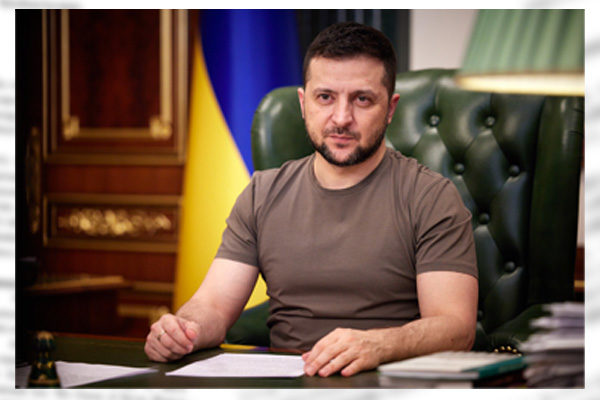On March 16, Ukrainian President Volodymyr Zelensky delivered a virtual address to the U.S. Congress. He called for solidarity with Ukraine, asserting that Americans should not be indifferent to the tragedy of Ukraine under Russian invasion. The address was excellent as a whole. But it included one point that Japanese could not ignore. The part of the speech in question was as follows:
“Ladies and gentlemen, friends, Americans, in your great history you have pages that would allow you to understand Ukrainians. Understand us now, when you need it right now — when we need you right now. Remember Pearl Harbor — terrible morning of December 7, 1941, when your sky was black from the planes attacking you.”
Zelensky’s inappropriate citation
As a matter of course, Zelensky had no intention to criticize Japan. He only cited the familiar event for Americans as an example of the terror of being attacked from the sky. In fact, however, there are Japanese whose feelings were hurt by Zelensky’s remark.
Zelensky did not make a simple comparison of Japan’s attack on Pearl Harbor and Russia’s attack on Ukraine. While the Japan-U.S. war is attributable to a conflict of opinion and interest over the future of East Asia, Russia’s aggression of Ukraine is unjustifiable, illegal, brutal and unilateral act of violence. It is inappropriate to use the memory of one scene of the former to deepen understanding on the latter.
How should Japan respond to the inappropriate comparison based on misperception? As a Ukrainian caring about Japan-Ukraine friendship, I do not want the impression of Ukraine in Japan will become bad because of the president’s remark. I would suggest Japan ask Zelensky through diplomatic channels to correct the remark. Such Japanese request may provide Zelensky with a precious opportunity to correct his wrong perception.
Reverse Western stereotype through communications
At the same time, however, Japan must understand this is not just about Zelensky. Regrettably, most Westerners have a similar historical perception. Former U.S. President Donald Trump has described Japan’s Pearl Harbor attack as evil. To correct the wrong perception, Japan has no choice but to proactively promote external communications.
In reality, established stereotype will remain unchanged unless proactive attempts are made to correct it. And in Western countries, only a few people are free from this stereotype. They cannot be expected to voluntarily move to change Western countries’ assessment of Japan regarding World War II. Therefore, Japan subjected to misunderstanding must proactively try to clear misunderstanding.
Andrii Gurenko is an international political scientist from Ukraine.


